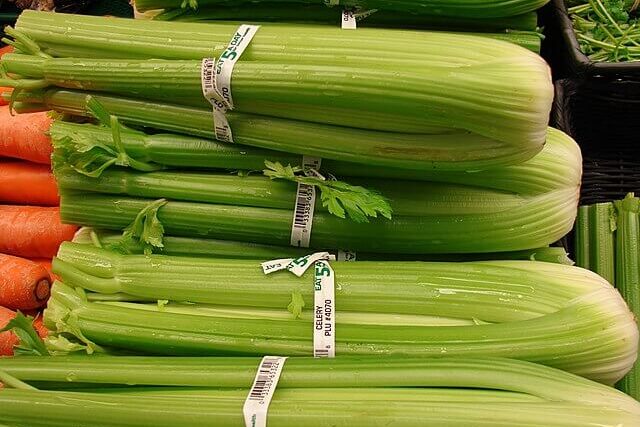
Is it possible to combat climate change by growing celery in rewetted peatland?
A preliminary is cultivating crops that can endure high water levels on bogland, and forestall carbon being delivered.
Could celery help in combating climate change?
Paludiculture, or wet farming, aims to rewet drained peatland and cultivate crops that can tolerate high water levels. Peatlands in lowland Britain have been drained for years for agriculture and the release of carbon. The local wildlife trust in Greater Manchester is cultivating celery on bogland that was drained for farming, leaving behind a small remnant of previous peat beneath the surface. The old field’s drains and ditches were clogged, and the water table was allowed to rise 10 to 50 centimetres below the surface, preventing the peat from releasing its carbon. Meanwhile, celery, a crop that can survive in wet conditions, was planted.
Cattail bulrushes are being grown in rewetted old peat in the Fens. After that, they are harvested, processed, and used as compost for commercial growers, biodegradable food packaging, and fireproof insulation for housing. Additionally, the plants help store water and remove excess nutrients from the water they grow in. Sphagnum moss is being grown as part of a paludiculture experiment at the Great Fen in Cambridgeshire. In the first world war, this was utilised as bandages due to its high absorbency and inherent antiseptic properties. Even the top of the moss can be used to grow seedlings instead of peat compost.
——————————————————————————
At Natural World Fund, we are passionate about stopping the decline in our wildlife.
The declines in our wildlife is shocking and frightening. Without much more support, many of the animals we know and love will continue in their declines towards extinction.
When you help to restore a patch of degraded land through rewilding to forests, meadows, or wetlands, you have a massive impact on the biodiversity at a local level. You give animals a home and food that they otherwise would not have had, and it has a positive snowball effect for the food chain.
We are convinced that this is much better for the UK than growing lots of fast-growing coniferous trees, solely to remove carbon, that don’t actually help our animals to thrive.
This is why we stand for restoring nature in the UK through responsible rewilding. For us, it is the right thing to do. Let’s do what’s right for nature!
Support our work today at https://naturalworldfund.com/ and join in the solution!


I needs to spend some time learning much more or understanding more.
Thanks for great info. What trips can you recommend in 2024? Astro tourism, eco diving, home swapping, train stations are the new food destinations,sports tourism, coolcationing, gig tripping, private group travel?